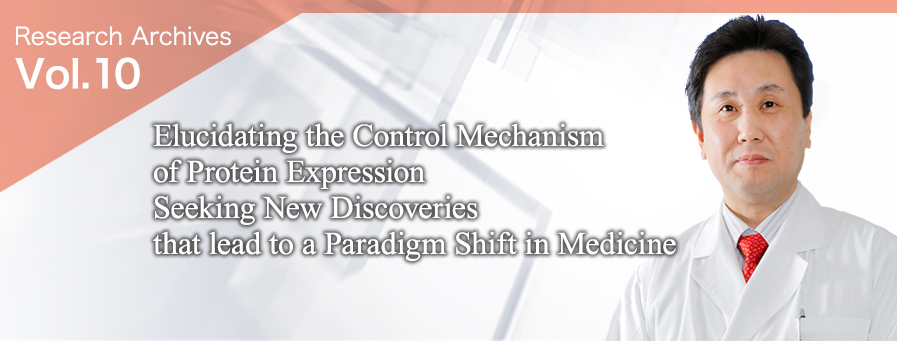
Laboratory of Medical Chemistry, Department of Biochemistry, Graduate School of Medicine, Hokkaido University
Shigetsugu Hatakeyama, M.D., Ph.D.Physiological
Science
- 1990: Graduated from Hokkaido University School of Medicine.
- 1994: Completed the Pathology Course, Hokkaido University Graduate School of Medicine.
- 1994: Participated in research on cell death (apoptosis) and preparation of knock-out mice at Washington University, U.S.
- 1995: Began research on "ubiquitination" at the National Cancer Institute (NCI), U.S.
- 1997: Returned to Japan as a Research Assistant at Medical Institute of Bioregulation, Kyushu University. Participated in research related to cell cycle and ubiquitination.
- 2000: Appointed as an associate professor of the Institute.
- 2004: Appointed as the current professor of Hokkaido University Graduate School of Medicine.
Searching for characteristics of ubiquitination and connecting them to cancer treatment research
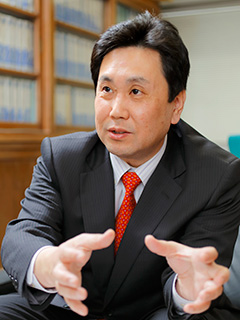
Since James Watson and Francis Crick publicized a thesis on a double-helical DNA in 1953, research in molecular biological developed spectacularly. In fact, in the same year, another extraordinary thing happened behind this discovery in molecular biology, namely the discovery of "energy (ATP)-dependent proteolysis." While DNA gained worldwide attention as the "blueprint of life," the opposite phenomenon, degradation of cellular protein, remained in the dark for several decades, with few researchers showing interest in this field. Shigetsugu Hatakeyama, professor of Department of Biochemistry is one of the researchers who search in this darkness, yet has not fallen behind with achievements in DNA research.
"Generally, energy is not needed in the process to disassemble or break down a substance. However, to degrade proteins conjugated with ubiquitin, energy is required. This is called energy (ATP) dependent proteolysis, in which ubiquitin is conjugated to targeted proteins by specific enzymes in a process called "ubiquitination." Expressly using energy to break down a protein is a major discovery, knocking the bottom out of conventional physical chemistry and biology concepts. Although virtually unnoticed at first, results of subsequent studies have discovered one very interesting characteristic after another. My fellow researcher, Dr. Aaron Ciechanover (professor of School of Medicine, Technion-Israel Institute of Technology, professor of the Ruth and Bruce Rappaport Faculty of Medicine) received a Nobel prize in Chemistry in 2004 for his research on the discovery of proteolysis mediated by ubiquitin."
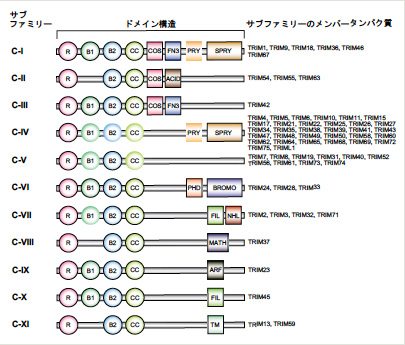
Moreover, "autophagy" shows relative correlation with ubiquitination in biochemical reactions, and has also gained attention recently. The Japanese researcher who discovered autophagy was nominated for a Nobel Prize in Medicine and Physiology in 2014-2015.
"It is not rare for researchers who graduated from medical school of to be nominated for a Nobel Prize in chemistry, medicine, or physiology. Basic medicine requires steady, progressive research, and the knowledge gained has the possibility of being used to contribute to the creation of world changing medical innovations. We hope those who have studied medicine will accept the challenges of this field."
Furthermore, a recent study has shown that ubiquitin plays an important role not only in proteolysis, but also in various life phenomena such as cell cycle, signal transmission, DNA replication, neurodegenerative diseases, and immunological response. Professor Hatakeyama has continued to classify some of the approx. 700 enzymes that are thought to be related to ubiquitination, as well as study their functions and mechanisms. The possibility that these studies will be useful in cancer prevention and treatment is highly expected.
Providing a fertile environment for concentrated study from a young age
Graduate school leads to more career options
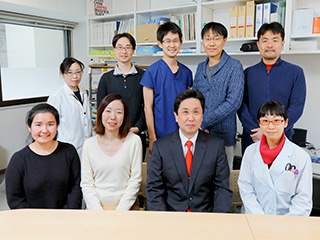 Besides students of medical school, students from the fields of pharmacy and agriculture are also associated with his laboratories. Many undergraduate students also come and go, and it is possible to do field work at research sites in the early stages of study. Before now, some medical students have reported research achievements as the first author of English research articles, and have supported the research of laboratory staff as joint authors of theses. Professor Hatakeyama said "I want young people to experience the joy of having their names included in the research history."
Besides students of medical school, students from the fields of pharmacy and agriculture are also associated with his laboratories. Many undergraduate students also come and go, and it is possible to do field work at research sites in the early stages of study. Before now, some medical students have reported research achievements as the first author of English research articles, and have supported the research of laboratory staff as joint authors of theses. Professor Hatakeyama said "I want young people to experience the joy of having their names included in the research history."
Many medical students receive two years of initial training after graduating from a medical school, then receive 3-5 years of senior resident training and specialty training. By the time they complete all this training, they will be in their mid-30s. If they wish to obtain a doctorate, timing as to when to go to graduate school will be important. Professor Hatakeyama says that participating in research at a younger age has greater meaning, even if postgraduate education is interrupted or delayed.
"Today, advancements in technology and information progresses very fast, and knowledge become old in a moment. Paradigm shift in the most advanced fields of science occurs in one or two years, so noticing such changes five years down the line is too late. Some people think that after obtaining a doctorate, one's employment opportunities become more specialized and narrow. In reality however, global jobs requiring human resources with doctorates and research experience have increased in recent years. Tailor made medical care has become reality even in the medical field, and high-level medical care of the future will no doubt require knowledge in molecular biology, molecular genetics, and bioinformatics. To do so, I hope that young people enter a doctorate course and acquire the most advanced fundamental medicine knowledge as soon as possible."
To definitely improve the ability of researchers, a leading-edge research environment, furnished with high performance devices and equipment such as next-generation sequencers and mass spectrometers, as well as a network with other research institutes and other countries, and shared achievements from national and international level projects are essential. In turn, including these in one's own career plan, and focusing on research is required. Professor Hatakeyama would like to increase the number of students taking the path to become a researcher by allowing them to experience the actual medical world and research sites which are rarely available to students still attending medical school.
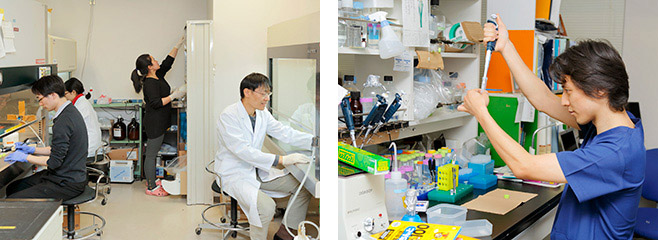
(Interviewed in January 2016)
Outreach activities to convey the appeal of science to future scientists
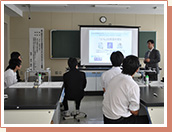 We actively participate in outreach activities in the biochemistry or molecular Biology field, in order to promote the training of future scientists. We seek to convey the wonder and importance of science to elementary, junior high and high school students, in a way that appeals to their age group. Every year, we receive requests from interested persons who have viewed our very popular laboratory website. We, as scientists, consider it our mission to share our most advanced scientific information with society in an easy-to-understand way, and to help as many people as possible to develop an interest in sciences.
We actively participate in outreach activities in the biochemistry or molecular Biology field, in order to promote the training of future scientists. We seek to convey the wonder and importance of science to elementary, junior high and high school students, in a way that appeals to their age group. Every year, we receive requests from interested persons who have viewed our very popular laboratory website. We, as scientists, consider it our mission to share our most advanced scientific information with society in an easy-to-understand way, and to help as many people as possible to develop an interest in sciences.


